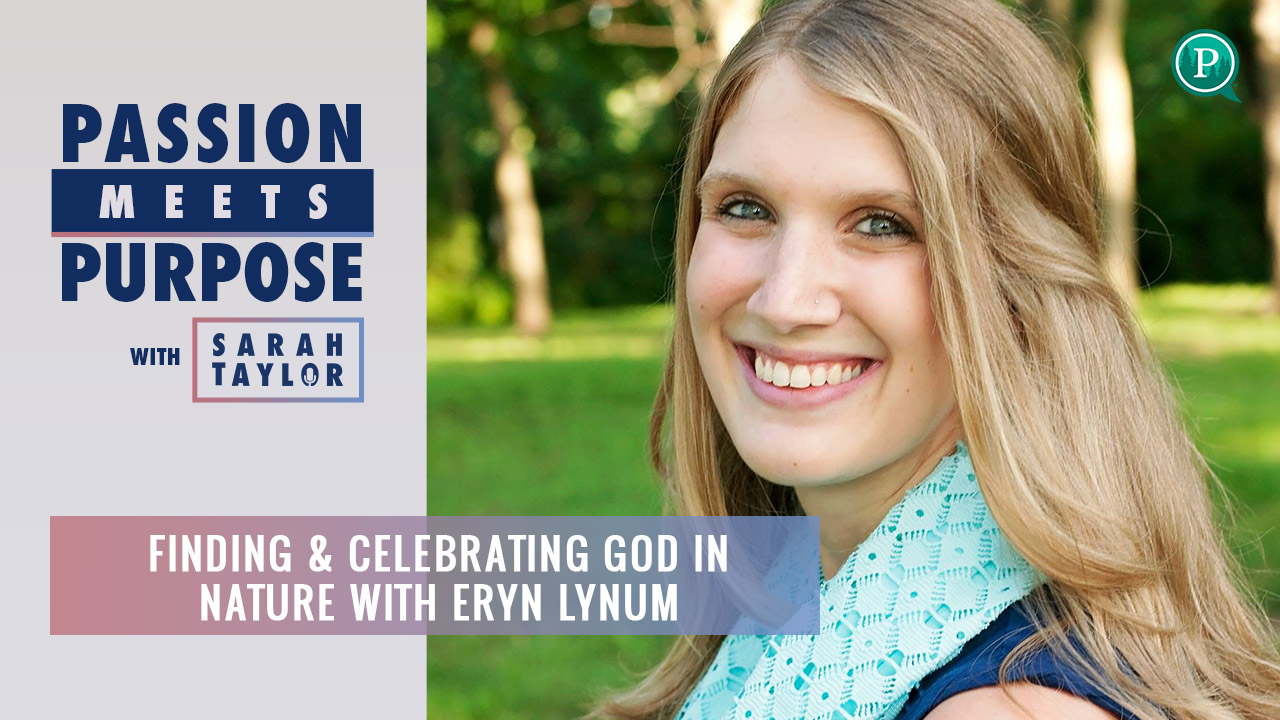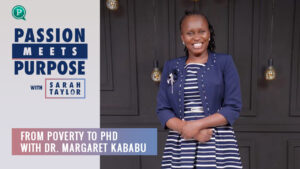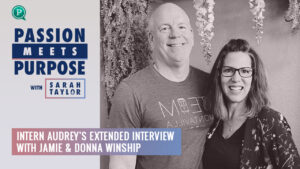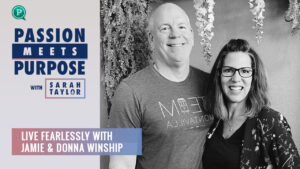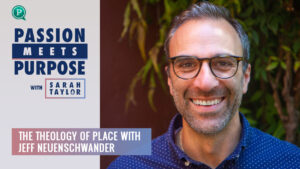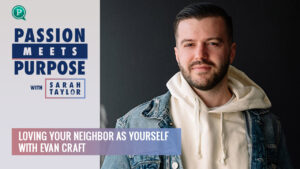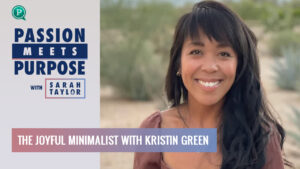Master naturalist, Bible teacher and author joins Sarah Taylor for a conversation on how her passion for the Bible and nature have come together in a beautiful way to share with others how we can all find God in nature.
Interview Links:
Find Eryn: Online | Instagram | Facebook | YouTube
Eryn’s Book: Rooted in Wonder: Nurturing Your Family’s Faith Through God’s Creation
Transcription:
Eryn Lynum:
God is the bringer of new life. And so when we go out and hunt for that, we can start seeing it elsewhere in our lives. If we make a practice of seeing how he is bringing new life, we’re going to see that more in every area of our work or our parenthood or our passions or whatever we’re doing.
Sarah Taylor:
Her name is Eryn Lynum. And if you love spending time outdoors or maybe you did as a kid and you wish you did it more often, I think you’re going to find a lot of inspiration in this episode. Eryn is a master naturalist and she’s going to talk about that. She’s a Bible teacher, an author, a homeschooling mom of four. And I want you to think about the last time you saw something so beautiful in nature, whether it was a sunset or a sunrise if you’re up that early, and then think about did you think about God when you saw that? Let’s dive into our conversation with Eryn Lynum.
Eryn, welcome to the Passion Meets Purpose podcast. I think you’re really going to like the premise because you’re living it out. This podcast is designed to help everyone listening discover what their unique talents and gifts are that the Lord has given them, and then how they use that to be part of a greater story to give back to the world. And here you are doing exactly that. So Eryn’s book is called Rooted in Wonder and the byline is nurturing your family’s faith through God’s creation. So my guess is you spend more of your life outdoors than you do indoors. Is that accurate?
Eryn Lynum:
That would definitely be accurate. And the goal.
Sarah Taylor:
So I want to know how old were you when that was first something that you would do?
Eryn Lynum:
So I grew up spending a lot of time outside. I think a lot of our generation did. It was just kind of the natural way to spend your childhood. And my parents would have us camping and hiking and just spending time in the great outdoors. But more than that was this passion for sharing God’s word. And even when I was a really young girl, if you were to walk into my bedroom, you could find me setting up little makeshift pews like out of paper and boxes and setting up my stuffed animals and preaching to them. And that’s not like a normal childhood activity. So when I was young, my dad actually told me that he saw in me the gift of prophecy and I had no idea what he was talking about. And he did not mean that as in she can tell the future.
No, not at all. What he meant was this desire to uphold and share truth, and that really stuck with me. And in elementary school, I would host these little vacation Bible schools in our front porch and invite the neighbor kids and have games and snacks and activities and the gospel. And then even in middle school, I started hosting these Bible studies out of the little shed in our backyard. And that took me right into high school. And then I went into Bible college and started training to go into overseas missions, and that’s where I met my husband. And although God had a very different plan for us than overseas missions, I love looking back and seeing that story and those stepping stones that led to the ministry that we’re doing today.
Sarah Taylor:
Tell me a little bit more about… So overseas missions, that decision does not come lightly at all. So tell me where that was, what the plan was, and then it sounds like it shifted.
Eryn Lynum:
Yeah, it did. So when I was 13, I got it in my head that I wanted to go to Africa and I was a really shy girl. I couldn’t stay the night at my best friend’s house down the street. I would get so homesick. Super picky eater. I just had this really small comfort zone that I stayed in. And so I knew that if I was going to go do a missions trip, I had to go far enough away that I couldn’t decide to come home. And so I chose the bush of Africa. And when I was 14, the year later, that’s what I did for two months. And that led to further missions trips in Southeast Asia. Panama.
Sarah Taylor:
Hold on. Your parents allowed you to go to the bush of Africa at 14 years old?
Eryn Lynum:
They did and get this, a couple of months before I left, I was diagnosed with a potentially fatal autoimmune disorder that I’ve lived with for 20 years now. And this was all new and completely out of the blue. And my mom’s first question to the doctor was, can she still go to Africa? Because my parents truly believed that this was part of God’s plan for my life. And it was. It’s what led to further mission trips, Bible school and meeting my husband and going into ministry. But yeah, I look back now, I’m a mom of four children and I’m like, what in the world did you let me do?
Sarah Taylor:
Right. Wow. Okay. And the doctor said yes. What did the doctor say to your mom?
Eryn Lynum:
I think he was a little shocked at first.
Sarah Taylor:
Not a common question.
Eryn Lynum:
No, not at all. But I just watched my parents work alongside my doctors and then the leaders who would be leading the missions trip and dialing in my medications. We signed up for emergency helicopter evacuation in case I would need it. They had everything in order, and we also knew that we were able to stabilize the condition very quickly, that once I was on the right medications, I could function super well and we had no issues.
Sarah Taylor:
Wow, okay. So you went, there were no issues. You were there for two months and then what you said, that sparked more in you, you wanted more of this?
Eryn Lynum:
Over there in Africa, I just fell in love with sharing the gospel and doing the Lord’s work. So very quickly after I got home, I started looking for trips the following year and ended up in Thailand, and then I went back to Thailand that winter. And then the following year at age 16, I actually led a missions trip for my youth group to Panama.
Sarah Taylor:
It takes me a minute to just kind of… You speak of it so naturally, but it’s like this is such a different life than most 16 year olds have. I have a 16-year old of my own. And so were you homeschooled? Is that why you had the flexibility to do this in your schooling?
Eryn Lynum:
Yeah, it definitely was. And in fact, me and my brother and sister were all homeschooled all the way through, except in high school my parents gave us the decision if we wanted to try going to school, and I’m the only one who took them up on that. And so I did ninth grade in public school and that was a shocker. And it wasn’t that I didn’t enjoy it, but I didn’t like losing my freedom of schedule and I really wanted to do more missions’ trips. And so after that year, I went back to homeschooling to give me that flexibility.
Sarah Taylor:
So 16, Panama, then what?
Eryn Lynum:
Then at 17 I got a job and I started looking to colleges and I knew I wanted to go into missionary work at that point. And so there was a small Bible College near Milwaukee, Wisconsin where I lived. And so I ended up going to that small Bible College with the emphasis in missions. It was a two-year program where we studied the word cover to cover for two years, and that’s where I met my husband and we married and had our two kids there and set our eyes on the mission field. We went into a training program and we were planning to move to Rome, Italy and plant a church for five years. And so with my medical condition, we thought, well, I don’t want to have our first baby over in another country. We wanted to be with my doctors. And so we hurried up and had our first child beforehand and then we didn’t go to the mission field.
So it’s funny how God works. I was 21 when we had our first son, and so super young, but seeing just God’s hand in it all and how he just had work that he wanted to do in our own hearts and in our own faith first. And then as we started putting our life back together like, well, what does it mean if we’re not going to the mission field? That was about when I started writing and where God started laying on my heart just sharing the truth through words. And then my first book came out of that and he just gave us this really clear vision of, well, I have work for you to do right here, sharing truth.
Sarah Taylor:
You and I share a love of words. Yours are written on a page and in a degree that is in biblical studies, mine are more spoken on the radio. But I think that I love how God uses words that have such power and how you and I both know the difference when you hear a lie versus the truth, it’s like you feel it in a different place in your body. Why don’t you talk to me about why you love words so much?
Eryn Lynum:
Well, a lot along the lines of what you just said, they’re so powerful. And of course, God’s word being the most powerful as we’re told, it’s living and active and it does not return void. And so I believe that when we share words that align with his word, that our words hold that power too. Of course not the same power of God’s living in active word, but you know what I mean, that we can communicate this truth that resonates in someone’s soul because it is holding the power of God.
Sarah Taylor:
And have you seen those different research studies where if you speak life-giving words to a plant, it flourishes and if you speak hate-filled words to a plant, it withers. Have you seen those?
Eryn Lynum:
No, I actually haven’t, but I have a lot of plants around my house, so I need to start doing that.
Sarah Taylor:
There are some controlled studies, and I even have someone at my work that did this because they wanted to see if it was true for themselves. And as long as you keep everything else scientifically the same, same amount of sunlight, same amount of water, the only variable that you change is you literally talk to one of your plants and you say, I love you. You’re such a beautiful plant. You’re thriving. And then you actually… It’s really hard. She said the hardest part was having to say horrible words to another plant.
But her point was that if you can see it in nature, how much more with God’s creation with human beings made in him his image. And can you talk about a time either in your own life or with one of your children where someone has given an unkind word or an untrue word, and it’s just… You know how we can all get stuck on just one negative thing that someone says one time. And then conversely a life giving word where you call out… The way that even your dad said you have the gift of prophecy, and something inside of you was like, that is who I am.
Eryn Lynum:
Yeah, I think I’m seeing this more and more as my kids get older and we homeschool, but they’re in a lot of programs. And so recently my oldest son who will be 12 this summer, he heard some girls at his homeschool program teasing him, and this was a first for him because they’re getting into this domain of crushes and little romances and that was the context. And he’s so sensitive and I think that’s one of the gifts that God has given him is his sensitivity and empathy. And so this just crushed his spirit and I was able to go to him and just say, you know what? What they’re saying is not based in fact or truth, like you know the facts and you know the truth and you know how your friend feels about you, and that’s what you need to focus on. That was actually something I really emphasized in my first book because I believe that as we’re raising kids, one of the most powerful things we can do for them is to speak words of life over them.
Sarah Taylor:
Share with our audience the name of that first book.
Eryn Lynum:
Yeah, that’s 936 Pennies: Discovering the Joy of Intentional Parenting. And it’s all about the 936 weeks we have with our kids between birth and 18. And it’s based on Psalm 90:12. Teaches to number our days that we may gain a heart of wisdom and just using that time wisely.
Sarah Taylor:
I love that. And then this follow up book, is it the follow-up or is there another one in between?
Eryn Lynum:
No, it’s the follow-up. And it’s kind of funny because in the first book it’s all about time and one section I really spent on how when we go outside with our kids, that expands time, it makes it fuller and deeper and more meaningful. And at that point, I liked nature, but it wasn’t my focus or my obsession. And so this book as God just brought me into his natural world and showed me the power of connecting scripture to it, this book is like a full expansion of that one section in my first book.
Sarah Taylor:
I love this. And so you take your biblical studies degree, and then you’re talking to parents who’ve got kids in this digital generation, and you’re taking your love for nature and you’re putting it all together.
Eryn Lynum:
Yeah, absolutely. So when my husband and I were in Bible school, we were taught that there are two main revelations of God, of course, the first is his special revelation, which is his living and active and inspired word. And the second revelation is called natural revelation, and it’s what we perceive of God through nature based on Romans 1:20. That his invisible qualities, namely his eternal power and divine nature have been clearly perceived since the creation of the world through what has been made so that we are without excuse. So if we bring these two revelations together, which was my desire in my work and in this book, they compliment one another. And we see Jesus doing this all the time. When he was teaching, so much more often than in the synagogue or city gates. He was outside in the wilderness and next to the sea and using these analogies of sparrows and wildflowers and grains of sand and olive trees, and he tied that all back to truth. And so if he did it, I think that we should also.
Sarah Taylor:
This is so good. This is also people like my mother who every time she’s outside looks at the mountains, looks at the sunset. How can you not see God? God is everywhere. She’s constantly… My mom would live outside all the time if she could, and she’s saying everything that you’re just talking about, she sees God in every single detail. She’s like, look at a caterpillar, look at the cocoon, look at the butterfly.
Eryn Lynum:
I love that. There was this time that I remember from when I was a young girl, I was out riding my bike around the neighborhood with friends, and we stopped in this neighbor’s yard because he and his wife were outside, and I didn’t even know this gentleman, he just lived in our neighborhood and he pointed our attention to the setting sun. And he said, every day God paints the sunset. And that stuck so poignantly with me because now every time I see a sunset or sunrise, I picture God and his careful brush strokes across the sky. And I just believe it’s so powerful when we begin looking at those details of nature. And it’s scientific more and more, as scientists are discovering the details of nature, creation, there are signs of intelligence and this finely tuned universe. And so when our kids grasp that, they actually see that nature and God go together, science and God go together because God made it all.
Sarah Taylor:
One of the pictures I love of that is if you look at an x-ray of somebody’s lungs and then you look at a tree, it’s like a mirror image.
Eryn Lynum:
I love that. I write about that a lot. And it’s so neat because God, when he put Adam in the garden, he surrounded him with these trees. So he had just formed man and then he made trees. And the coolest thing is that trees are actually the lung of the planet. Without trees, we couldn’t breathe because they take in the carbon and store that, and then they release this healthy oxygen for us to breathe. And so I love that visual that the human lungs, you look at it and actually looks like an oak tree. Matthew Sleeth wrote an incredible book on that called Reforesting Faith, and it’s all about the theme of trees throughout scripture and why they’re so important.
Sarah Taylor:
Well, why wasn’t this taught in my science class growing up? I would’ve paid a lot more attention if this was being presented.
Eryn Lynum:
Right. I know, but you know what? We got to get more of this out there because it is, it’s fascinating and it’s full of truth.
Sarah Taylor:
Can you give us another example like the lungs? What’s another one that you love?
Eryn Lynum:
I love milkweed. So milkweed is a plant that grows in a lot of areas. We have a lot of it here in Colorado, and it’s actually absolutely essential to the monarch butterflies. Monarchs are what are called a specialized species where they will only lay their eggs on one plant, which happens to be the milkweed. The really fascinating point about that is that milkweed is toxic. If an insect bites into the leaves of milkweed, it lets out this sap that’s so sticky that it glues their mouth shut and they die of starvation. But the monarch caterpillar, when it hatches on that milkweed, it has discovered that if it travels down to the vein where the sap flows and severs that vein, it cuts off the toxicity and then it can go back up to the leaf and eat and live and thrive. So I’ve used that picture with my kids to show that when we sense toxicity, when we hear or see or sense something is not good for us, that is not right, that is poisonous. We need to find the source of that and sever it, cut it off.
Sarah Taylor:
I love this so much. You got to do another one. I’m just going to make you do this for the rest of your time here. Give me one more.
Eryn Lynum:
Yeah, that’s great. I love doing this. This is what I love teaching. So I’m obsessed with birds. Bird watching is something our whole family does together. My son and my husband really got us into it. And so we live in an incredible bird habitat where we get to see dozens of species come into our yard every day. So it’s just how we spend our time. And as I began watching birds, I wanted to study their migration patterns, and I found these incredible correlations between how birds migrate and how God helps us move through life. Birds migrate because they sense the shorter days, so they know when to make a move, when it’s time to go.
But what’s really fascinating is how they navigate the skies. For one, they’ll use the position of the sun throughout the day. They’ll also use the stars at night for their navigation. But even when it’s cloudy and they can’t see the sun or the stars, they can sense the magnetic field. Some scientists believe they can actually see the magnetic field from a protein that’s inside their eye. And so I love using that analogy that just like God created the birds to know when to move and where to go, his spirit tells us when to make a move in life, and his word is our navigation, our compass to tell us where to go.
Sarah Taylor:
How did you discover this? Is this just what you do every day? How did you discover that?
Eryn Lynum:
Some of it came from my training as a master naturalist, but that was really just the beginning. As I began seeing these analogies and how powerful it is to tie creation to God’s written word, I began gobbling up all the information I could get. And most of it stems from personal experience. We love taking drives as a family and spotting wildlife. And so whether we’re driving or hiking or whatever experiences that we have, when I see a new bird, I want to learn about it. So this week, actually, just a couple of days ago, we had this late snow storm, which happens a lot here in Colorado. And so it snowed all day long. We had several inches of accumulation, and during that time, two female Cassin’s finches were harmed in our yard. One we actually woke up and found in our trampoline and she couldn’t fly over the net and the other hit our front window.
And so we rehabbed them as part of homeschool that day. You can take them and put them in a box and then put them in a really quiet place where they can just get better. It usually only takes about an hour because when they hit a window, they’re stunned and they just need time to recoup. And so while we had these birds before you release them, when they were ready and when the weather had calmed down, before we released them, we got out bird books and studied Cassin’s finches. And so when you have these experiences in nature, when you discover a new flower or an insect or a bird or you see something and you’re just like, why does that do that? Follow that interest, especially when your kids have those curiosities, just fuel that wonder and curiosity by learning more. And then as you’re becoming familiar with God’s word and the nature narratives that are strung throughout it, you will start making those analogies and those connections because that’s how God made it.
Sarah Taylor:
Those Cassin’s finches are so lucky that they found themselves in your yard. You are the right family for a bird to have a problem.
Eryn Lynum:
We’ve actually had… There’s a neighbor who brought an Evening grosbeak to our door one day.
Sarah Taylor:
That’s what I would do.
Eryn Lynum:
And it had hit his window and he was like, what can you do for this bird?
Sarah Taylor:
100%. If I was your neighbor, I’d be like, kids, take it over to Eryn. She knows what to do. She’ll figure it out.
Eryn Lynum:
Well, we love having those close encounters when it’s appropriate. Sometimes, I mean, it’s always better to leave nature be, but also we were given dominion and Genesis 2:15, God placed Adam in the garden to work and keep it. And that word keep means to protect and guard and regard that nature and nurture it. And so sometimes we are meant to intervene when it means that we can be helpful and take care of what God has made.
Sarah Taylor:
My teenager and my 11-year-old, I don’t know if they notice as much any more outside. They’re definitely more digital type of people, but our six-year-old, I think she’s still young enough that when we go outside, do you know what she loves most? Is bees. She’s not afraid of them at all. And she’ll go and she’ll talk to them in the plants and she’ll say, good job, bees. You’re working so hard. Good job pollinating.
Eryn Lynum:
That’s amazing. My mom is a beekeeper and I just love hearing from her how they work and what they do. And I think it’s such an incredible analogy of community and hard work and these designs that God has etched into nature. And your daughter’s seeing that. That’s incredible.
Sarah Taylor:
Well, tell me a little bit more about how time outdoors can help kids’ mental health.
Eryn Lynum:
I think that’s huge, especially right now as we are seeing these alarming rates of depression and anxiety and suicide rates. I think that God gave us nature to keep us healthy, to restore us and not only physically, but mentally and spiritually and emotionally. So after we had our fourth, who’s our only daughter, I went through a season of postpartum depression, and I didn’t know what it was at first because I never had that with our boys, but she was four months old and I was not myself, and I was just really struggling emotionally. And it was actually my husband who [inaudible 00:23:20] and said, do you think that this is postpartum depression? And once we could put a name to it, I was able to start healing. And what I found was I went outside and I went outside with my daughter, and as she at four months old was discovering God’s world, I was finding healing in it.
And there have been studies done that prove that. Even studies done of hospitals who… If their patients have a view of a grassy area or trees or nature, they recover faster and better than patients who have a view of a brick wall. And this all makes sense to me. It is natural that when we are surrounded by life, it is life giving to our spirits, to our minds. And so nowadays, when I am struggling or when I see my kids struggling with just problems that they’re… As they’re trying to figure out this world and this crazy culture that they’re growing up in, we go for a hike. And I loved one day my son told me during a difficult season, he said, mom, we need to go hike to sort our thoughts. And it makes sense because God tells us in scripture to focus on all that is lovely and good and true and right and honorable, and we find that in his creation.
Sarah Taylor:
I’ve also heard that taking a walk, something lights up different areas of your brain, the creative side. I guess there was a study done of a team, a work team in a conference room trying to brainstorm ideas, and then they sent that same team on a walk and the amount of ideas that they came up with while walking was a certain percentage higher than if they were sitting in a room.
Eryn Lynum:
Absolutely. That’s actually called biomimetics. And I talk about that in the book in a chapter called Creation and Creativity. And we see it naturally with our kids because they go outside and they just start building things with rocks and stones and sands and making these little habitats or building little dams in the creek. But there’s a whole science to it. And in the book, I give all these examples of people that have invented things based on creation.
So even like there’s a high speed train in Japan that was built based on a kingfisher’s beak. That’s my favorite bird. And it has incredible way of diving even up to 25 miles an hour into the river to catch its prey without making a splash. And so they use that to create a really streamline high speed train. Or Velcro, after this man, he came inside with his dog and found the little burrs. Sometimes when you’re hiking or something, your clothes are covered with those burrs. Well, that’s what Velcro came from. And so bio-inspiration is whether from a face standpoint or secular standpoint, you go out into nature and that inspires our designs and ingenuity.
Sarah Taylor:
That’s so fascinating to me. Tell me, okay, so you’ve completely sold me on outside is good for all of us, but what if this is new to the person listening? I mean, obviously already they’re hearing this on a podcast, probably on their phone, probably indoors, maybe. I’m just guessing. And if you’re outdoors right now, good for you, bonus points. But if you’re more indoorsy, what are some first steps? Especially if you live in a city where there’s just not a lot of nature around you.
Eryn Lynum:
Begin making those small connections. You don’t have to move to the mountains or plan a whole day trip to the beach. You can go outside and have your child choose something that they see in nature, whether it be an insect or a flower or a bird. And just start asking, how does that reflect God? Or what do you think God was thinking when he made that insect? What has he placed inside of it? Do you see beauty or wisdom or community with the bees? Help your kids and yourself to really start making those little connections and it will grow from there. And in the book, ending every chapter, I have a step outside section and it’s two part. So one part is see God in nature, and that’s a hands-on activity to go outside and start making these connections. And the other is see nature in the Bible. And that’s more of a short devotional or Bible study to really start synthesizing these two revelations that we have of God.
But just start going outside and making those connections. I love one activity in the spring going on a scavenger hunt for new life and just seeing all the different hints of new life. So whether that is birds making nests or buds on trees. God is the bringer of new life. And so when we go out and hunt for that, we can start seeing it elsewhere in our lives. If we make a practice of seeing how he is bringing new life, we’re going to see that more in every area of our work or our parenthood or our passions or whatever we’re doing.
Sarah Taylor:
Even as we’re talking at the time of this recording right now, it’s almost peak bloom for the cherry blossom trees. Do you have those in Colorado? We’ve got them everywhere here right now.
Eryn Lynum:
Not many. No.
Sarah Taylor:
They’re my favorite because they’re just beautiful pink pastel. And years ago I was like, man, why do I love these trees so much? I was Googling them and someone said that they’re known for two things. They are known for their extreme beauty and their incredibly short lifespan. And it’s true. It’s like you get two weeks of blooms and if there’s a windstorm, you get one week of blooms. And I realize my spirit, my heart gets excited when I see the buds, but almost when they reach peak bloom, I start to get sad because I know that they’re going to go away really soon and then I’m going to have to wait a whole nother year. So why don’t you biblical studies dissect that? What’s going on with me, with the trees?
Eryn Lynum:
I give a similar analogy like that in the book and talking about wildflowers. June in Colorado is breathtaking because of our wildflowers, and we have them here down at 5000 feet, but as we go higher, they kind of change and we get different species. So one of my favorite things to do is visit the same area every week or so throughout the spring or summer. And I actually did this after I suffered a miscarriage, and that was another instance of I was just looking for healing out in nature. And so I started running through this meadow and I ran there about three times a week over spring and summer. And what I noticed was that there was this cadence to the wildflowers that certain species would bloom and I would get a week with them, and the next week I’d come back and they were gone and something else was in its place.
But I love that scripture tells us the same thing, that the flower is here today and gone tomorrow, the grass of the field withers, but also that we’re told that when it blooms, it thrives. And so what does it look like to thrive and flourish in that short time? And God compares our lives to that. And so if we are given this short blip of time to do the work that he has given us, how do we make sure that we are flourishing and thriving like those wildflowers?
Sarah Taylor:
I feel like you have another gifting that you might not even have named yet, but you’re kind of like a nature counselor. Someone can take what they feel out in nature, all these feelings, and you almost help filter them like, oh, well, that relates to this in God’s word, and you’re probably feeling this. Do your friends ever come to you and talk to you about that?
Eryn Lynum:
That means so much to me. No one’s told me that. Thank you. I mean, people come to me. I get like texts from friends all the time, and it’s pictures in their backyard. What is this bird? We just saw that. But no, not like that. That’s awesome.
Sarah Taylor:
Okay, well, here’s another one that I bet you’re going to have an answer for. I have several people in my life that when they are overwhelmed or scared or need a good cry, but the tears haven’t come yet, they drive to the ocean because here in Seattle, the Puget Sound is a short drive and they go sit, and that’s where they are. Why would you say, why do we do that?
Eryn Lynum:
Things in nature that are so magnificent, such as oceans, and here are the mountains, they remind us of our small place on earth and that although we are so small, we are not small in God’s eyes because he made that ocean and he made those mountains, and then he made us and called us even better. And so it’s not important that we feel big and heard and have a platform here on earth. What matters is that God sees that massive ocean, but his eyes are on us.
Sarah Taylor:
See, look at you. That’s so wonderful. Wow. Well, I’ve just so enjoyed our time together today, and I love just your unique giftings that God has given you and the things that interest you, and then the way you teach your children. And now with this book Rooted in Wonder, the way that you’re teaching all of us. So we’re going to link Rooted in Wonder: Nurturing Your Family’s Faith Through God’s Creation. And it’s been called masterfully connecting scripture to nature and nature to God. So that’s what someone said about your book, and we’re going to link it in the show notes here. Where else can people find you?
Eryn Lynum:
You can find me on my website. It’s just my name, ErynLynum.com. It’s spelled a little funny though. I didn’t plan that. It’s just cool that God gave me a great husband with a last name that would match my first name. But on my website you can find my blog, but I also have free resources and devotionals and activities that you can download to really get you started in this and making those analogies between God’s written word and his created worlds.
Sarah Taylor:
Eryn, an absolute pleasure. Thank you so much.
Eryn Lynum:
Thank you for having me. This was super fun.
Sarah Taylor:
Thanks so much for being here today on the Passion Meets Purpose podcast. We’re going to talk again in two weeks, but in the meantime, if you want to do us a huge favor, obviously you know this by now. If you leave a review, it really helps others to find this podcast. It also helps us to make it better, and then you can contact us anytime at Purposely Podcasts. Until next time, thank you.
Follow this podcast:

